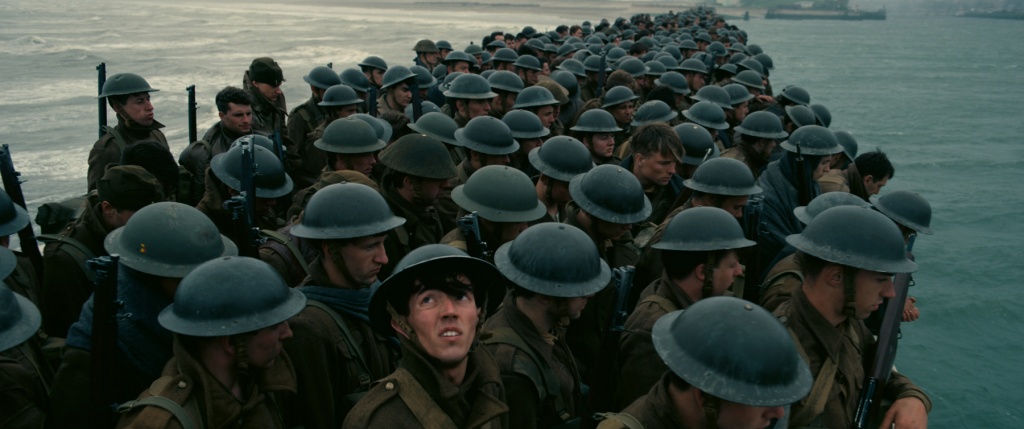
Christopher Nolan’s Dunkirk begins an existential nightmare and ends as nihilistic commentary on time and fate. But really, what war film doesn’t? And what could Nolan’s Dunkirk stand to teach us that Patton didn’t? That Saving Private Ryan didn’t? Or The Longest Day? The Thin Red Line? Atonement?
I’ve been a nut for World War II films for a very long time (I blame a precocious addiction to Band of Brothers developed at the age of 12). I’ve written several articles on the subject of war as depicted in film, academic and otherwise, and I have argued several interpretations of the genre because that’s what film critics do. But Dunkirk is a film that defies interpretation and disregards analysis. Unlike previous Nolan films there are no lengthy soliloquies or quotable explanatory soundbites. There is depth but to what end? It is complex but remains simple. Much like war, the film simply exists, without meaning, without reason, with little more to guide our tale than the superficial cause and effect logic that results from the trickling passage of time.

Students of history will ultimately know how the evacuations at Dunkirk resolve. There is no suspense in the sense of wondering what will happen to the characters that we’ve connected with––they will either live or they won’t, but the larger war effort won’t be much affected. Instead, Dunkirk is not so much a story but an experience relayed in three parts: by land, by sea, and by air. We’re given characters to follow but we never really know their names and many of them are difficult to distinguish from others. We see soldiers stranded at Dunkirk awaiting evacuation as winding, sprawling masses of young men in patient, purgatorial queues. We watch as a civilian family attempts to cross the English Channel in order to assist with the evacuation efforts. We follow a pair of pilots who cover the skies in a series of tightly framed aerial spins and rolls. These three stores are told, respectively, over the course of one week, one day, and one hour.

Dunkirk is minimal. Sparing in dialogue, sparse in plot, and so lacking in storytelling conventions as basic as names and character arcs as to feel nearly experimental. But unlike Nolan’s earlier pieces such as Memento or The Following, Dunkirk is oddly straightforward. Visually, its frames are as stark and expansive as the sea and sky which Nolan’s cameras so greedily drink up. Its indulgent arrays of the French coastline set beneath a cerulean sky are somehow both agoraphobic and claustrophobic. Dunkirk transports us to the familiar emotional space that Interstellar presented, an empty place where character and viewer exist as helpless beings trapped by the physical elements of the universe and the cruelty of fate.

In traditional Nolan fashion, Dunkirk creates an experience where time is not simply linear nor circular, but somehow both, a Möbius strip of perspectives and experiences that tumble and fold backward upon each other as sharply as Inception’s Parisian streets and Interstellar’s mountainous tidal waves. As an experience the film is neither quick nor laborious, but expands and contracts as nimbly as time itself, and is as fluid as the ocean that lurks in ominous ripples. The little bit of story and character that we do see plays with traditional war themes –– the duality of heroism compared to simple survival, the dialectics of bravery and cowardice, and the simple physical contrast of land and sea. What does Nolan’s rich visual language and dense cinematic presentation say about war? What does it say about time? I’m not sure that it says much of anything at all, and in saying nothing, it says plenty.

